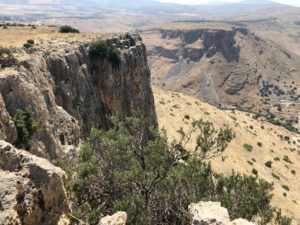This podcast (12 mins) focuses on the 4th beatitude, "Blessed are those who hunger and thirst for righteousness, for they will be filled" (Matthew 5:6).
Click on the arrow to play the podcast, or you can use the "download" icon to download the podcast (if available). You can also right click here, in order to save the audio file and listen later.
"Blessed are those who hunger and thirst for righteousness / justice, for they will be satisfied."
What does this mean? Consider such passages as:
- “Man does not live by bread alone, but by every word that comes from the mouth of God” (Matt 4:4; see Deut. 8:3).
- “I am the bread of life,” and “If any man thirsts, let him come to me and drink” (John 6:35; 7:37).
- “As the hart pants after the water brooks, so my soul pants after you, O God. My soul thirsts for God, for the living God” (Psalm 42:1-2).
- Do these passages explain the 4th beatitude? Do they clarify what it means to hunger and thirst for righteousness? Not much, for there are multiple forms of hunger and thirst in Scripture.
- Rather, this passage centers on righteousness—justice.
Righteousness isn’t
- Knowledge of the Word.
- Being right with the Lord—longing for our own righteous standing before God.
- Desiring a relationship with God.
Righteousness is
- A desire for justice for oneself—especially when suffering oppression or injustice.
- A desire for justice for others—going hand-in-hand with concern for the poor and needy.
- 6:33—there is justice when all parties respect the Lordship of Jesus.
- (The N.T. word dikaiosune is related to the word dikaios, meaning upright or just.)
The Program of Isaiah 61
- Remember to see the Beatitudes in the light of Isaiah 61—Jesus' messianic program.
- This is tremendously good news, especially for those deprived of justice, the have-nots, the masses of the common people—as opposed to the religious aristocracy.
The Spirit of the Lord God is upon me,
because the Lord has anointed me to bring good news to the poor.
He has sent me to bind up the brokenhearted,
to proclaim liberty to the captives,
and the opening of the prison to those who are bound;
to proclaim the year of the Lord's favor,
and the day of vengeance of our God; to comfort all who mourn;
to grant to those who mourn in Zion—
to give them a beautiful headdress instead of ashes,
the oil of gladness instead of mourning,
the garment of praise instead of a faint spirit;
that they may be called oaks of righteousness,
the planting of the Lord, that he may be glorified….
Instead of your shame there shall be a double portion;
instead of dishonor they shall rejoice in their lot;
therefore in their land they shall possess a double portion;
they shall have everlasting joy.
For the downtrodden, do these promises mean full deliverance, vindication, justice, satisfaction now?
- No.
- But a new day has dawned. Something has been set into motion—inaugurated, launched, underway.
What to do?
- Care about the less fortunate.
- Become aware (the news).
- Study the scriptures and develop a truly scriptural conviction about this important theme.
- Plug in somewhere:
- Serving in a seniors home.
- Volunteering in a soup kitchen.
- Providing jobs for the disadvantaged.
- Tackling the serious issue of human trafficking, or slavery.
Serve in Doctors Without Borders, HOPEww, or another great organization. - Or make money and help to fund a worthwhile and effective program!
Don't dilute the punch of Matthew 5:6 by labeling it “the social gospel.”
- The gospel is good news for everyone—not just the middle class.
- It is especially good news for the god-fearing poor.
- In Corinth, most were poor; not many were high-born. For consider your calling, brothers: not many of you were wise according to worldly standards, not many were powerful, not many were of noble birth (1 Cor 1:26). Yet many churches today are the opposite: many are well off, not many are poor.
Our next podcast—closely connected with this one—is on mercy.









